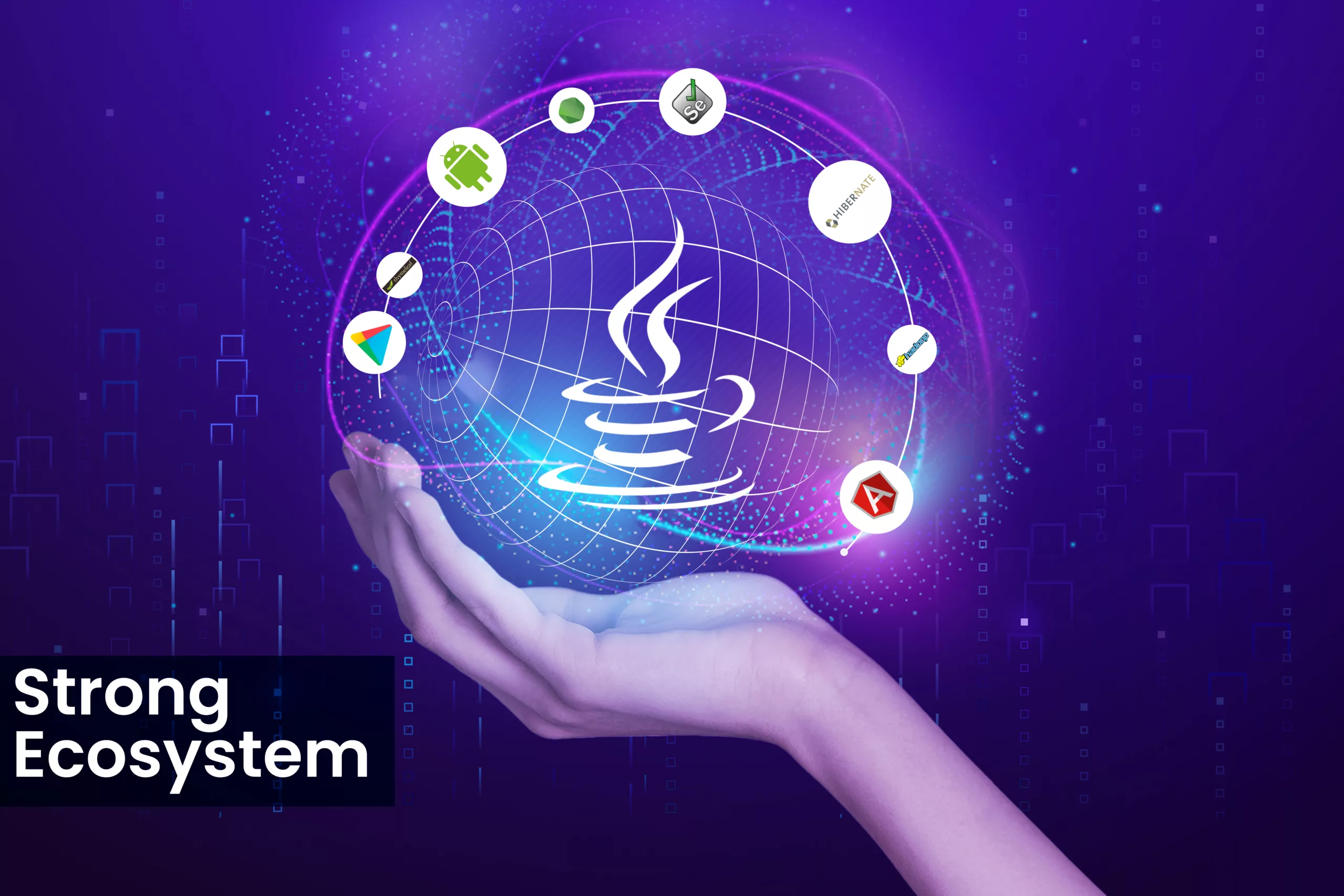According to a recent survey, the usage of Java is climbing worldwide. 49% of developers in the world reported using Java for building websites and web applications.
In this article, we’ll dive deep into the pros and cons of Java for your development projects. We’ll help you navigate and suggest if you should use this language or not. So, your project goals align with the final results you have expected.
Without further ado, let’s begin.
The Pros of Using Java

Java is a versatile programming language for software development. It offers numerous advantages, making it a perfect choice for your project. Below they are:
Cross-Platform Compatibility
One of Java’s most significant strengths is its “write once, run anywhere” capability. Java applications are compiled into bytecode and are executed on any platform with a compatible Java Virtual Machine (JVM).
This cross-platform compatibility is invaluable if you are aiming to reach a wide audience. It eliminates the need to develop separate codebases for different operating systems.
Strong Ecosystem

Java boasts a vast and mature ecosystem of libraries, frameworks, and tools. Developers have access to a wealth of resources that can streamline development and reduce coding effort. Whether you need to build a web application, a mobile app, or an enterprise-level system, Java library or framework is available to help you get started quickly.
Excellent Performance
Java offers excellent performance thanks to its bytecode compilation and Just-In-Time (JIT) compilation. The bytecode is optimized for execution, and the JIT compiler further improves runtime performance by translating bytecode into native machine code at runtime. This results in fast and efficient execution of your Java application, making it suitable for high-performance and resource-intensive applications.
Robust and Mature
Java has been around for more than two decades, and its maturity is a testament to its stability and reliability. Many large enterprises rely on Java for mission-critical applications because of its proven track record in delivering consistent performance and security. The language’s robustness and extensive testing contribute to its reputation as a dependable choice.
Community Support
The Java developer community is vast and active. It comprises millions of developers worldwide who contribute to the language’s growth and maintenance.
With such a large community, you’ll find abundant resources for learning and problem-solving. Forums, blogs, and open-source projects are readily available to help you tackle any challenges you encounter while working with Java.
The Cons of Using Java

While Java offers many advantages for software development, it’s essential to be aware of its drawbacks as well. Let’s explore some of them:
Verbosity
Java is often criticized for its verbosity. It requires more lines of code compared to other programming languages to achieve the same functionality.
This verbosity leads to longer development times and potentially more room for errors. So, your Java developers must write and manage a significant amount of boilerplate code, which can be time-consuming and less concise.
Slower Startup Time
Java applications have slower startup times compared to applications developed in languages like Python or JavaScript. This is because Java applications initialize the Java Virtual Machine (JVM) and load classes, which add overhead to the startup process. While this may not be a significant concern if you have a long-running server application, it is noticeable in scenarios where quick startup is crucial, like command-line tools or small utilities.
Memory Consumption
Java applications consume more memory compared to applications written in languages like C or C++. The JVM’s memory management and garbage collection mechanisms lead to higher memory overhead. This can be a concern for applications running on resource-constrained environments, like mobile devices or embedded systems.
Lack of Modern Language Features
While Java has evolved over the years, it has been criticized for lagging behind some other languages in adopting modern language features. For example, it took several versions of Java before introducing features like lambdas (Java 8) and records (Java 16).
Use Cases for Java
Java has been widely adopted across various industries and for a multitude of use cases. Its robustness, platform independence, and extensive ecosystem make it suitable for a wide range of applications. Here are some prominent use cases for Java:
Web Development
Java is used for building web applications both on the server and client sides. On the server side, Java web frameworks like Spring and Java EE (Enterprise Edition) provide the tools to develop scalable and secure web applications. On the client side, Java applets (though less common now) were used for creating interactive web content.
Enterprise Software
Java is a preferred choice for developing enterprise-level software, including customer relationship management (CRM) systems, enterprise resource planning (ERP) software, and human resource management systems (HRMS). Its stability, reliability, and ability to handle complex business logic make it well-suited for such applications.
Mobile Applications
Android Studio, the official Integrated Development Environment (IDE) for Android, uses Java as the primary programming language. Java’s portability allows your developer to create applications that can run on a variety of Android devices.
Big Data and Analytics
Java is frequently used in big data and analytics. Hadoop, one of the most popular big data processing frameworks, is primarily written in Java. Java’s performance, scalability, and robustness make it suitable for processing and analyzing large datasets.
Scientific and Research Applications
From scientific to research domains, Java is particularly used for applications that require complex mathematical computations and simulations. Java libraries and frameworks like Apache Commons Math and Apache JAMA provide tools for scientific computing.
Financial Services
Java is a dominant language in the financial services industry. It is used for building high-frequency trading systems, risk management software, and banking applications. Java’s performance and reliability are crucial in this sector, where even a small error can have significant consequences.
Game Development
Although not as common as some other languages like C++ or C#, Java is still used in game development. Game engines like LibGDX and Java-based game development platforms offer tools for creating 2D and 3D games.
Internet of Things (IoT)
Java’s platform independence and the availability of Java ME (Micro Edition) make it suitable for developing software for IoT devices. It can be used to create embedded applications for various IoT use cases, from smart home devices to industrial sensors.
Desktop Applications
Java Swing and JavaFX provide libraries and tools for developing cross-platform desktop applications. This allows your developers to create applications that can run on Windows, macOS, and Linux with a consistent look and feel.
Turn Your Dream Project into a Success Story
Searching for Java developers who understand the nuances of your project and carry it out perfectly? VinnCorp can provide you with one.
We are one of the top Java development consulting firms with a strong database of over a million developers, all while providing you with the top 1% of employees. From vetting to conducting detailed interviews, we connect you with a suitable employee.
Get in touch with us to hire Java developers online and shape our dreams into reality.



